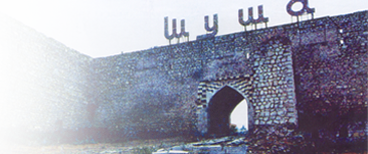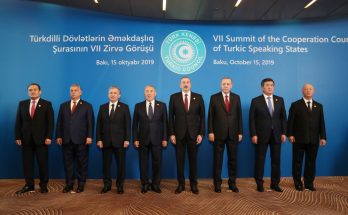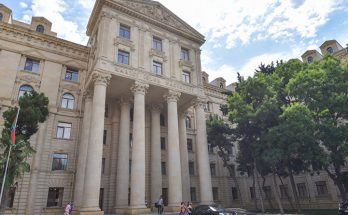
During the recent visit to Azerbaijan and Armenia, OSCE Minsk Group co-chairs urged the sides to take steps to reduce tensions and avoid violence, particularly against the civilian population in the zone of Nagorno-Karabakh conflict, a message from OSCE said on Oct.17.
The co-chairs of the OSCE Minsk Group from the Russian Federation and France (Ambassador Igor Popov and Ambassador Pierre Andrieu) traveled to the region this week to meet with government leaders of Azerbaijan and Armenia and participate in an OSCE Monitoring Mission on the Armenian-Azerbaijani border.
The co-chairs were joined by the Personal Representative of the OSCE Chairperson-in-Office, Ambassador Andrzej Kasprzyk.
In Baku, the co-chairs met with Azerbaijani President Ilham Aliyev, and in Yerevan, they met with Armenian President Serzh Sargsyan. In Yerevan, they also had consultations with Foreign Minister Edward Nalbandian.
In both capitals, the co-chairs discussed preparations for the upcoming summit hosted by French President Francois Hollande later this month in Paris.
The co-chairs recounted the recent meetings of the presidents in Sochi and Wales, and noted the stabilization of the situation along the line of contact and border after the increase in violence this summer. They also expressed hope that recent ceasefire violations would not escalate.
On both sides of the border, they met with local officials and commanders to receive a briefing about security conditions.
The conflict between the two South Caucasus countries began in 1988 when Armenia made territorial claims against Azerbaijan. As a result of the ensuing war, in 1992 Armenian armed forces occupied 20 percent of Azerbaijan, including the Nagorno-Karabakh region and seven surrounding districts.
The two countries signed a ceasefire agreement in 1994. The co-chairs of the OSCE Minsk Group, Russia, France and the U.S. are currently holding peace negotiations.
Armenia has not yet implemented the U.N. Security Council’s four resolutions on the liberation of the Nagorno-Karabakh and the surrounding regions.
/Trend/




